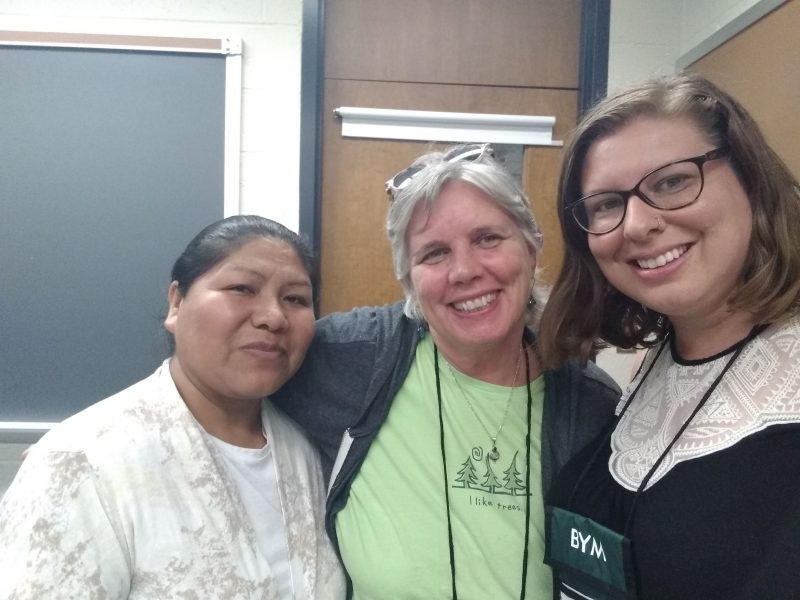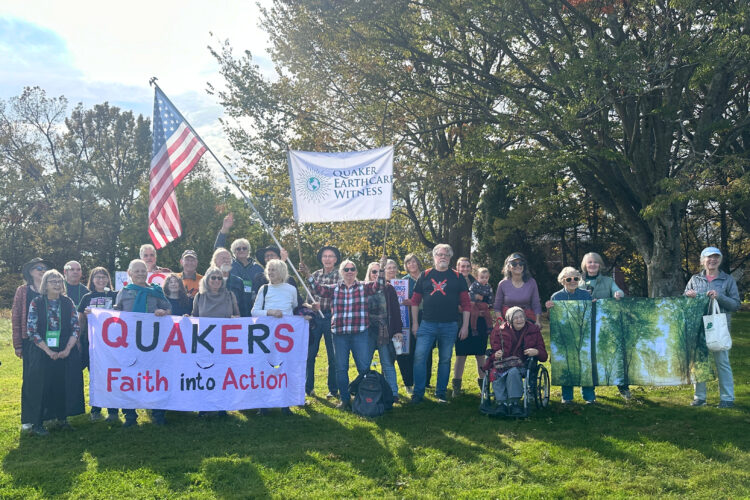“We Had Something, Now We Don’t.” Bolivian Friends Face the Climate Crisis

By Emma Condori Mamani.
My name is Emma Condori. I am from Bolivia. I was born near Lake Titicaca. Most of my childhood was very beautiful because I was raised in community life in one of the indigenous communities we have in Bolivia, called Aymara. One thing I really appreciated in my childhood was nature, because in Bolivia, most of the people live in the countryside—we depend on nature for food and clothes.
As a child, my mom and I would walk, going from my home to the mountains as we took care of the animals, and she would teach me about all of nature, like the water in Lake Titicaca, the flowers we could see on the road, about the sky—how the sky was beautiful.
I’ve seen how climate change has affected my community…the river I used to have next to my house started to get low when I was finishing high school. Nowadays there is no more water at all. There are many rivers near my community that are dry right now.
As time passes, climate change is showing up again and again in different ways. Every year I can see the difference. The snow covered mountains were the most beautiful white every morning when I woke up during my childhood—but as I grew up, by the time I was attending university, the mountains were getting more and more gray, and now there is almost no snow.
It’s very striking: the idea that we had something, but now we don’t. In Lake Titicaca, we used to have fish for meals, but nowadays, eating fish in Bolivia is only for the rich because the lake has been polluted. Now the children who live near the lake cannot enjoy the fish that I used to enjoy when I was a child. It is heartbreaking that they can’t enjoy the landscape I enjoyed as a child…
I’ve also been seeing how there is less and less water for Bolivian families, especially in the highlands near the mountains. Right now, my family is only able to get water three times a week.
Around the year 2000, I heard and saw news on television and in the newspaper about the city of Cochabamba where women were killed by the Bolivian and US military because the women were asking for the basic human right to have water for their families. In that city, many families didn’t have water at home, and the former president invited foreign companies to come to Bolivia. They bottled the water and tried to sell it back to Bolivian families. This became the War of Water.
What happened in 2000 made me think about myself as a Quaker. I felt that it was an injustice that these women had to die because they wanted to have water. Since then I’ve been holding this in the Light, trying to do my best and to encourage young people as a teacher.
In 2016, we started an organization called Friends International Bilingual Center. We have been working with elementary-school and high-school kids and Young Adult Friends. In November that year, we ran out of water in La Paz. It happened suddenly—nobody noticed that the reservoir was drying up and suddenly we had no water at home.
There was a group of kids attending the same Friends church, and half of the kids had parents who did not have enough money to buy a bottle of water. It has been very hard for kids to see their classmates, neighbors, and peers not able to have water. As a response, they came up with very interesting projects. They went to the main plaza and talked about the importance of protecting water and that adults should be conscious about how much water they use. That was the first step. Later they came up with a project to build biosand water filters. It’s an ecological filter that can provide enough clean water for two or three families.
Climate change doesn’t just mean we don’t have water, but that the seasons have been changing. Many families lost their loved ones, houses, and animals in the flooding or during the drought this past year. We face extreme seasons every year now. Because of that, the children decided to work on the biosand water filters.
Right now, we want to raise our prophetic Quaker Youth voice from South American so that our voice can be heard across the world. We don’t want to say that this is just happening in Bolivia, we want Quakers to stand up and say what is happening to the world—I know that in this nation, and in other nations, some people don’t want to see what is happening, or they lose hope thinking that things are going to be impossible to change. But as Quakers, we have that light of Christ in us and that love that God gave us. With the favor that God gave us, we can do something to make a difference now, here. We don’t have to wait until next year or the next 10 years.

